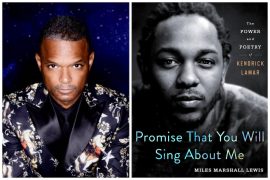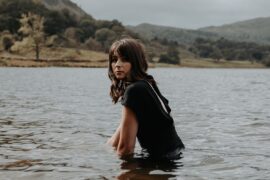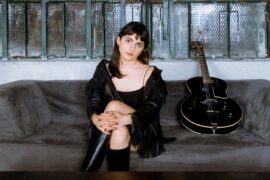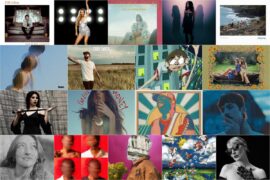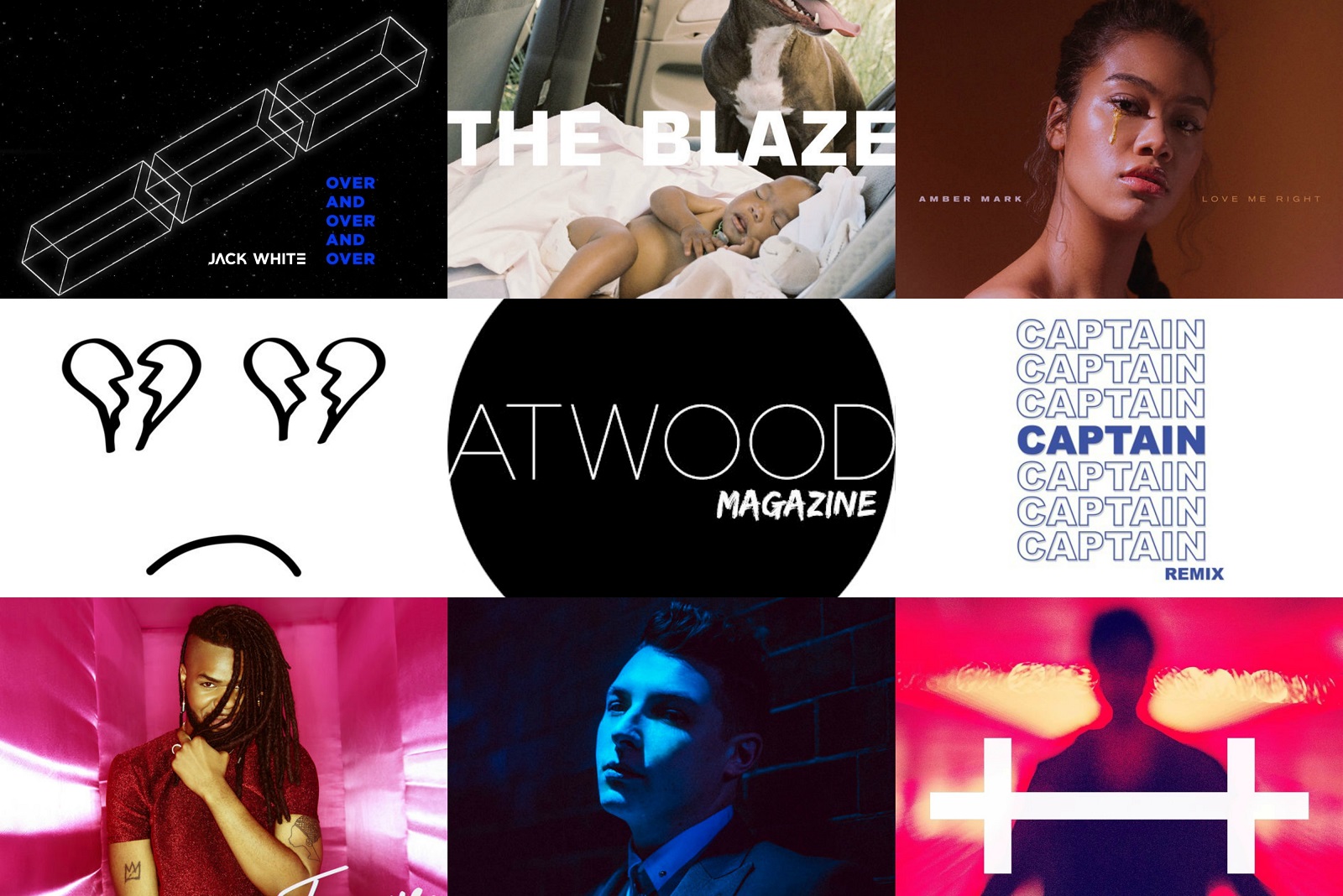San Francisco’s indie funk ensemble Sally Mango return with their third full-length album ‘Homemade,’ a testament to independent artistry and creative curiosity.
Stream: ‘Homemade’ – Sally Mango
We’re making music and really just enjoy making it for ourselves, without thinking about what happens after release. Like let’s just make what sounds good to us.
Sally Mango released Homemade earlier this year – a jazzy, funk-rock record that you can’t help but bop along to.
As the third album under their belt, Sally Mango are always finding new ways to reclaim their artistry, subverting creative intuition and independence every time. This time, they came with a truly self-made album from start to end: from the songwriting, composition, production, mixing and mastering, the band pooled their skills to do it all.
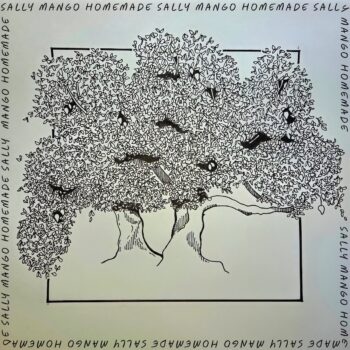
Hailing from the San Francisco Bay Area, the six-piece ensemble is made up of Zia GV, Rohan Sahai, Mikey Scheufele, Charlie Buffa, Julia Chanin and Nick Turley. The band has so far garnered a loyal fanbase simply by word of mouth and live shows. Leading with intentional creativity and experimental musicianship, they found their definitive sound to lie between the fusions of indie, soul, R&B and pop.
Where their sophomore album Pressure Slide spoke to anxieties of climate dread, Homemade takes a more lighthearted feel. Lead singer Zia GV’s tender vocals gleam and glide over seamless rhythmic compositions, transporting you straight to the golden fields and beaches of California, from which the album was inspired.
Homemade is a reckoning of bold artistic will and creative liberation.
From tracks like ‘Love Inventory’ and ‘Hummingbird,’ which bring the band’s funkier stylings to the table, to songs like ‘Ultraviolet’ and ‘Cheeks in the Sun,’ that allow softer nuances to shine – Sally Mango covers all bases. The band’s chemistry is immediately evident in the songs, and their tight-knit friendship ensures the music holds snippets of their most special experiences. For this record, the band found themselves pushing the creative outskirts of prior possibility. Hidden below the surface of this record is the band celebrating their first ‘baby mango’ of the band – keyboardist Rohan’s son.
Zia and Rohan from Sally Mango sat down with Atwood Magazine to discuss the conception of the album, the wondrous process of creative discovery, and how Homemade ‘unlocked’ a new plane of imagination for them. They also gave Atwood a little taster of what’s to come for the band, and how their third album symbolized, in some ways, the end of an era for them.
— —
:: stream/purchase Homemade here ::
:: connect with Sally Mango here ::
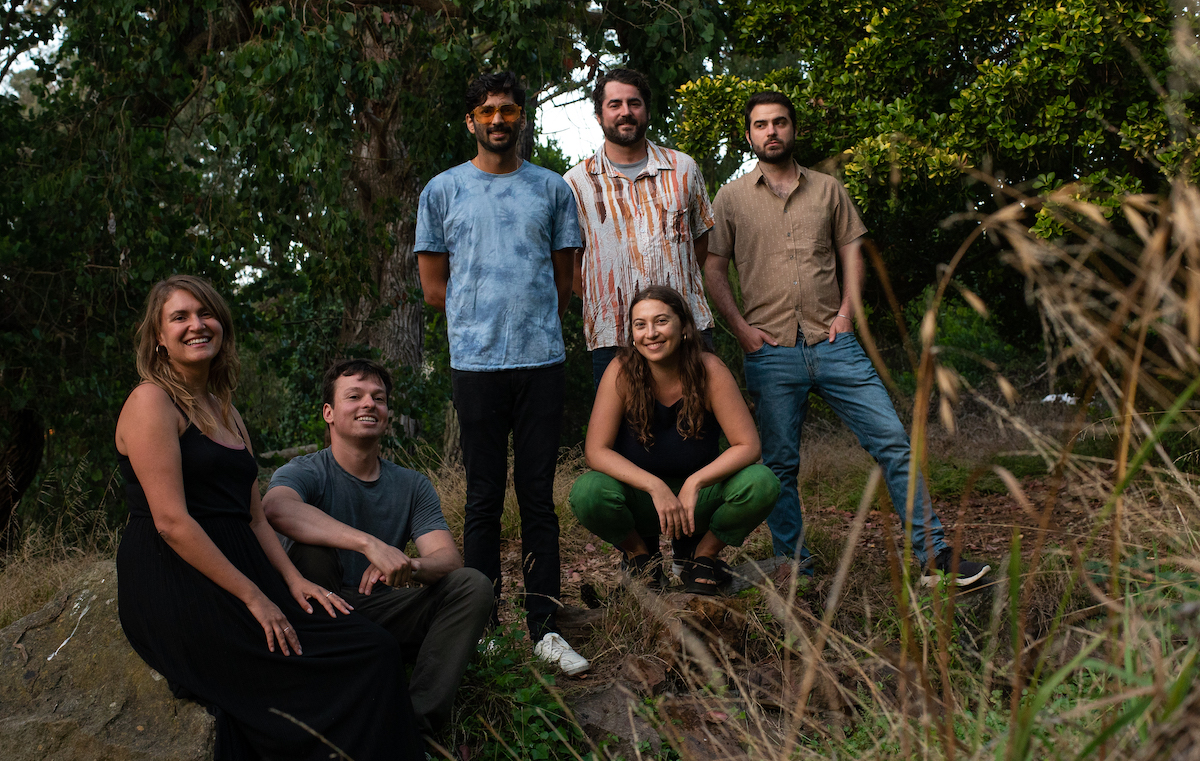
A CONVERSATION WITH SALLY MANGO
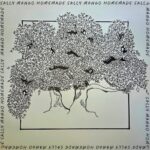
Atwood Magazine: Congratulations on Homemade! How would you say that this album release has been compared to your other releases?
Zia GV: I think that’s a really great question for Rohan too, but I would say we know a lot more about how the process works now that we’ve done it a couple times before.
Rohan Sahai: Yeah it’s not our first rodeo, so we kind of have a sense of the process a little bit more this time. We have enough of a fanbase that we could just sort of put the music out there, post about it once, and it starts circulating, which is cool. Whereas I think with some of the first albums we did, we honestly did so much more self-campaigning.
Do you feel like there's more pressure, if at all? Especially with more of a fan base now.
Rohan: This one felt like way less pressure for whatever reason. I think that’s how I felt anyway, the most streamed song we ever had came from the first album with ‘Sidewalk.’ After the interview with KQED and NPR I think we knew it was getting good feedback. I loved it. And then the second… I think honestly, after it was all said and done, I think we were a little softer on the excitement around that album. But this one, and Zia you can speak for yourself, but I think after we released this one we were all very stoked about it.
Zia: I was gonna say that for me, I see it more as a personal project. It just feels fun, there’s no pressure. Sometimes I look at our Spotify and I’m like damn, there’s a lot of music out there that we’ve made through the years. It’s just really nice to look back on. I always say it’s like a photo, or when I listen to old songs, and I’m like oh that’s how I was feeling in that moment, and that’s crazy.
Rohan: I think Claude Monet had 2500 paintings, and we’re at like maybe 40 songs. So I think we want to pass 2500 but we’d have to be making albums every year for the rest of our lives to be close, haha! I mean, he was just throwing a lot of darts out there, and thinking maybe one of them will land, and that’s how this is. Maybe it wasn’t that good but he just made a lot of stuff.
Zia: Rohan is lowkey an art historian, haha!
Rohan: It’s just a passion on the side, I wouldn’t say I’ve been doing it long enough to be called a historian. But I feel like I should tell you about the concept for our new album, it’s pretty wild. It’s based on this painting called The Garden of Earthly Delights, by Hieronymus Bosch, who’s a Dutch painter from, like the late 1400s.
Zia: It’s one of the trippiest, wildest things you’ve ever seen. In our music practice room we have a huge replica of the painting. And our new album is focusing on little stories within the painting, and that’s what will make the songs. It’s this like, deeply religious painting, and we’re not a religious band at all but there’s so much to say about it.
Rohan: I thought it was someone on mushrooms in the ’60s at first. Zia has actually seen the painting in person in Madrid.
Zia: Yeah, but it’s been really fun because in band practice, we always say, “let’s get heavenly.” or “let’s get into hell vibes,” so yeah, it fits.
That’s so exciting! Circling back to Homemade, can you tell us a bit more about what led to the conception of the record, and what that creative process was like?
Rohan: I think in some ways there’s just the natural cycle of releasing an album and getting to work on the next thing. I think some of the themes that bring this album together… We lean into a lot more simple, percussive sort of rhythmic songs. But a lot of simple grooves, and ‘Love Inventory’ is a bit like that. But, you know, we’ve kind of said that’s cool. We just find the groove, and let Zia do her thing over the song. Keeping it a little more simple.
The second part is the homemade part of it. It was just really exciting that we were building this home studio, and we’re gonna try to do it end to end. I think that feeling was there somewhat early on in the songwriting processes.
Zia: I think the album before was a little angstier than this album. This one has a little bit of angst, but not so much. This one has a lot of different vibes, for all the different moods one might feel in life.
Rohan: I think there’s something kind of cool about this homemade thing. We’re in an era of Sabrina Carpenter – who is dope by the way, I love her music – but yeah just Apple Loops and stuff like that. Lots of AI generated music, and I’m not against that at all, I work in technology and I think we should embrace that. It’s the next phase of tools for artists. But it’s kind of cool. I almost think of this as like a nod to the end of an era. We made all the grooves, we played all the instruments, we recorded it all.
Do you see it more of an end of an era for the way you guys are making music, or generally?
Rohan: I think generally. I mean, I personally want to use a lot of weird synths and crazy shit on the next album, so maybe it is a little of both.
Zia: I think for me in the lyric department, sometimes I joke that I don’t have enough drama in my life to have lyrics anymore. Like, I’m really scraping the bottom of the barrel for the feelings that I need to have lyrics. So I feel super released from that pressure with the idea that our next album is based on a really trippy painting. Like, I’m down for the end of an era on that too. I feel like I’ve said what we need to say in the last three you know, I’ve shared my climate dread. I’ve shared my romance debacles. Like all of those things have been said and now we can just talk about trippy Dutch paintings.
I suppose that would just be a really fun writing exercise for you. Because now you have to challenge yourself to draw from the imagination instead of your personal experiences.
Rohan: She literally has to write about flowers coming out of buttholes, haha! That’s literally in the painting. It’s like Where’s Waldo.
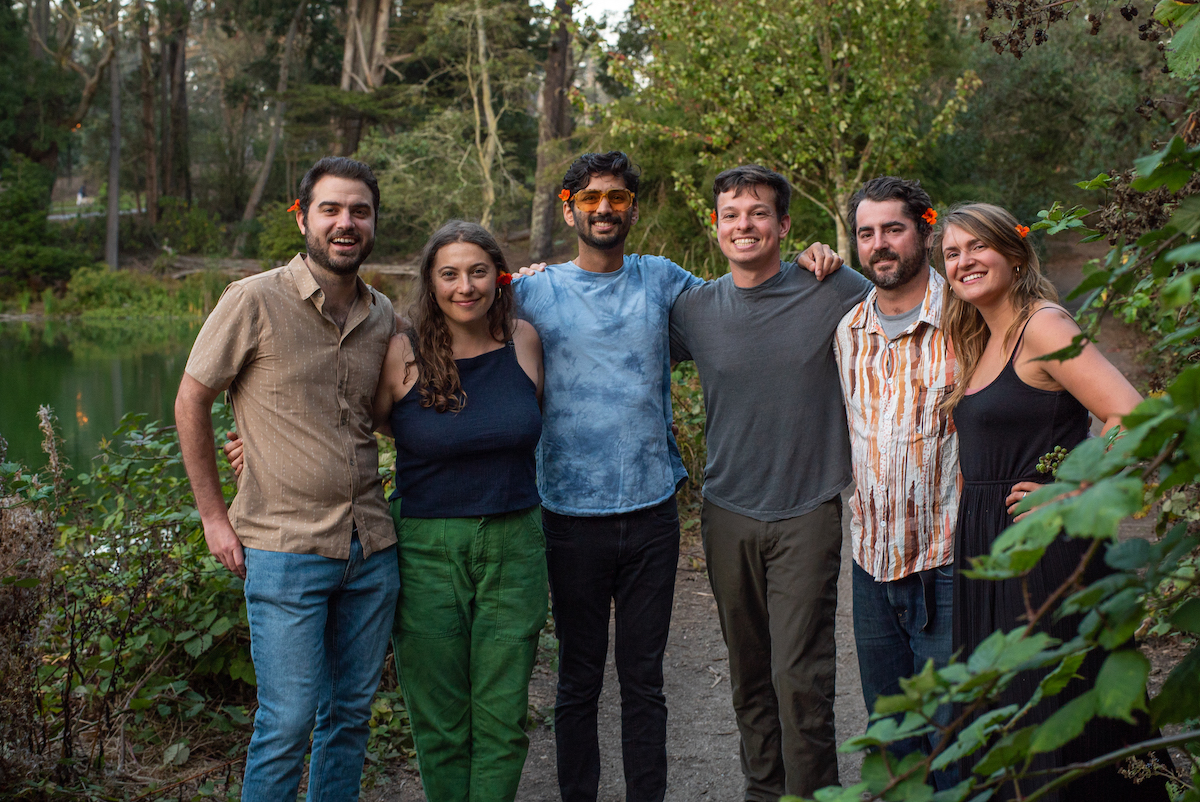
Do you always start albums with concepts and build around that or do you just make music until you reach a point that you have an album?
Rohan: I think this one, the painting is the first concept we’ve had to start with. So yeah for the other ones we were just writing music. A theme might emerge, especially musically but probably lyrically too. And it’s just about getting to a volume of songs where we’re like, okay now we should start putting it together. So this one feels like a new frontier, I’m not feeling mournful about anything but we’re just trying something new.
I really love the jazzy, funky vibe that you guys bring to the table. As you were just saying, it has a really organic feel. Who were your influences making this album? Or were you listening to anybody at all?
Zia: I feel like we’ll often be like, this reminds me of someone’s song, and we play that while we’re trying to craft something which I find helpful. Like it can be helpful to hop into another vibe for a second. I feel like Hiatus Kaiyote is always a reference– end goal. What about you, Rohan?
Rohan: Yeah, I think there’s a stable group of artists that influence all of our music, like Hiatus Kaiyote, Anderson Park, Erykah Badu, but there’s some unique things that came through this album. Like there was a song that’s very Pink Floyd inspired, which is a little bit of a departure from our normal sound. I think it’s got some like late ’60s, early ’70s singalong.
I’m curious which one was the Pink Floyd song, because one definitely came to mind when you said that.
Rohan: ‘Folded Faces’! It has this big chord, and that’s almost like, exactly what Pink Floyd does in the first song on Dark Side of the Moon.
I was going to say that was my favorite song off the record! And ‘Hummingbird.’ Do you guys have favorites from the record?
Zia: I think ‘Cheeks In The Sun,’ just because that one came really organically to us, like in one sitting. It was so fun, and I left that session feeling really alive and fulfilled. Also, this is just an aside so it doesn’t really count, but ‘Let’s Order Family Dinner But I Have Dietary Restrictions’ just makes me laugh so much whenever I hear it myself.
I was gonna ask about that one! What's the story? How did that come about?
Rohan: We often order dinner together, and our saxophonist Julia was, like, “should we do a family dinner? Should we split a bunch of stuff?” And then proceeded to list all of her dietary restrictions. Basically, let’s share a bunch of food, but also, I can’t eat anything. So we were lightly joking, poking at her. And I think it was Mikey who just started, like, singing “let’s have family dinner, but I have so many dietary restrictions,” and then we all started singing it, and someone hit record. I had the whole album mastered and ready to submit and Zia was the one who texted me and was like, “make sure family dinner is on there!”
Zia: I just think that when we’re old, that’s the one we’re gonna listen to and be like, oh yeah, that’s how fun it was to make music together
Rohan: I think my favorite is ‘Love Inventory,’ even though I’ve listened to it too many times. I think it’s just got like a really nice groove, and it’s catchy. ‘Folded Faces’ might be my second favorite. I really liked that song when I was mixing it. The thing is, I was mixing all these songs. So I’m so sick of them by the time we release them. But I’ve listened to ‘Folded Faces’ many times. I never got tired of mixing it, because there’s just so many interesting little parts to the song, especially the keyboard solo at the end. So, yeah, that’s probably my second favorite.
So you did all the production and mixing yourself?
Rohan: Yes, with some help from our bassist, Austin. He mixed ‘Younger Than Today,’ and I mixed the other songs, and then he mastered everything. We almost sent it out for mastering. And then we were like, we’ve done everything ourselves so far, why don’t we just do this too?
That's really great. It's truly a homemade album through and through. Tell me about the album artwork, it's kind of got the homemade vibe as well.
Rohan: Yeah. That was a friend of ours. It was interesting, we had actually taken a picture on Austin’s roof of a cake that said ‘Homemade’ on it. Zia made it. And we were thinking that would be the album cover. It just wasn’t right I think. If we were in the era of CDs it would have been on the back of the CD kind of thing.
But yeah we were brainstorming what else we could do that would encapsulate the album. And there was this idea we talked about, hummingbirds and trees. Ultimately the idea of a mango tree. We asked one of our friends who’s an artist to draw it real quick, and he did it in a day and sent it to us. We were like, this is sick, and that was it.
It sounds like it was meant to be! What would you say inspires your writing together? Would you say the music traces your individual lived experiences, or, more so as a band?
Rohan: Yeah, that’s a good question. I mean, definitely there’s like, a center point between all of us in the artists that influence us. But I think everyone also has different stuff they like, and I think that comes through on the album. Our drummer, Mikey, likes a lot more hard rock and hip hop. Charlie likes a lot of funkier stuff, you can tell from the horn sections. Zia listens to a lot of folk music and I like a lot of Brazilian stuff. I think that web of things kind of comes together when we’re songwriting and lands with this unique sound. In terms of non-musical things, I think there are themes that find their ways into each album. Like, for the first album there was this climate dread concept that we all really resonated with. For this one, it was a lot more positive lyrical songs about, like, relationships and stuff. I think that gave the whole album a fairly lighthearted feel.
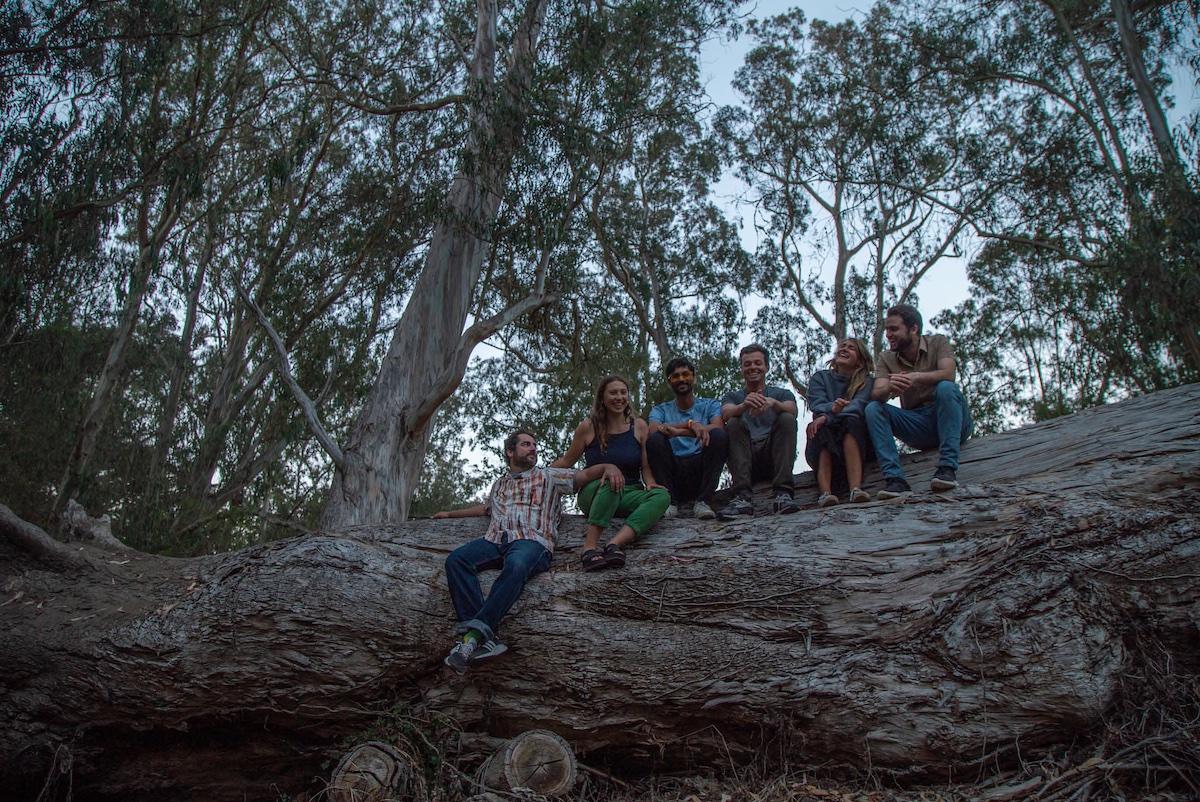
Can we talk a bit about how you guys came together as a band?
Rohan: Yeah! So me and the drummer, Mikey, went to college together. We played in a band called Juicy Fruit, and we both moved to San Francisco. We didn’t live together at first, but then we were like, why don’t we just do this so we can have a music room and play music? People would just come over and jam. The short version is – we assembled more and more people who were jamming. And when Zia came – that was the first moment we were like, this could be a band.
I also have to ask how you guys came up with ‘Sally Mango’ for a band name. Was it an offshoot from Juicy Fruit?
Rohan: Not even! I didn’t even realize the connection until I said it out loud just now. Sally Mango doesn’t have that interesting of a story, to be honest. But it was when Zia just came. Mikey and I were trying to write lyrics to a song, and he said “name a food,” and I said “salami.” And he said “name a fruit,” and I said “mango.” We were trying to fit in a lyric. And Salami Mango felt weird so that became Sally Mango. Anyways, yeah, it was a lyric in a song. When we played Zia this song she just thought it was hilarious. It came up again later when we were discussing band names, I think it was actually Zia who suggested it. I just remember being obsessed with this idea of the band name being an actual name, like Edward Sharpe or something to that effect. I just thought it was such a cool concept.
Sally Mango is definitely the one, it just lands so well.
Rohan: Thank you! The only thing is people always think Zia’s name is Sally. Or sometimes we’ll get emails that’s like “Hi Sally!”
What would you say that Homemade represents to you guys in the trajectory of your music careers?
Rohan: I think maybe, A: this represents a stage we’re making music and really just enjoy making it for ourselves, without thinking about what happens after release. Like let’s just make what sounds good to us. And B: the fact that this proved to us what we can do completely organically. I think it’s going to propel us, and we’ll have a lot more homemade albums. It’s just freeing, we won’t be pressed about studio time and nailing the songs within the 2 days we have, and sending them out for a thousand dollars to be mixed and not getting all the revisions we want. It’s just such a stressful part because you lose a lot of the creativity. So this feels like a major unlock. We did it, it came out, we still like it a couple months later. It’s a great unlock for us.
One of the things we talked about was being more gradual in our recordings, like recording them as they’re ready – instead of one big day where we record everything. That can only be done in a home studio.
Yeah, that gives you so much more flexibility. It gives you more space to catch the magical things that happen during recordings. That’s so liberating!
Rohan: ‘Wind or Breeze,’ and ‘Cheeks In The Sun’ were only possible at home studios. We had basically finished the rest of the album, and we were like what if we cut this thing and loop it? And Zia sang over it and that’s how those songs came together.
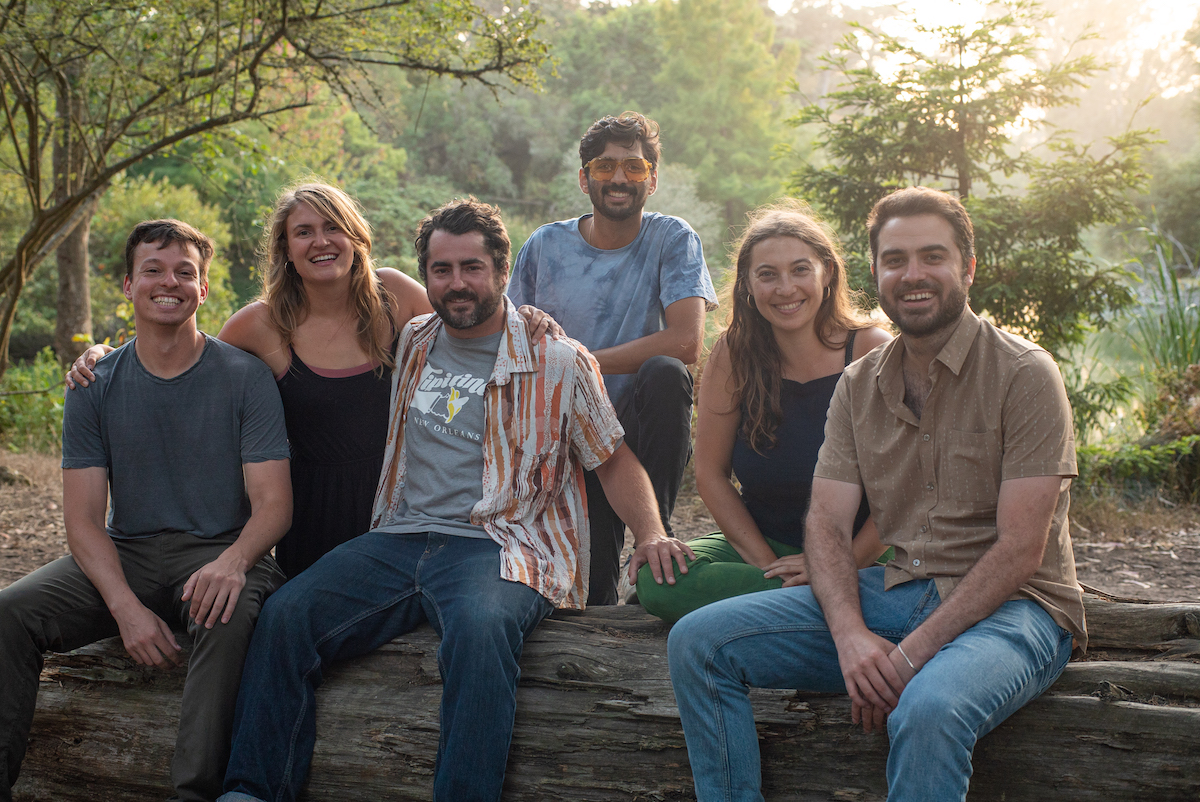
How would you say this record has helped you to grow as musicians?
Rohan: A very technical thing comes to mind. We recorded all this to a click track in our home studio. Our last album we didn’t. So you have to be way more diligent about practicing and being very on time before the recording session. We pushed ourselves there to see how that would play out. I think when we record ourselves we really have to plan out exactly how we’re gonna do it, whereas in the studio you have them coming up to tell you what’s the best way. I’m just excited to record the next thing, because there’s so much we learned that we want to do differently on the next one.
To wrap up, what do you hope your audience will take away from this body of work?
Rohan: I mean, whatever they want, really! Hopefully it’s easy listening and they find something they like, and want to have on repeat.
— —
:: stream/purchase Homemade here ::
:: connect with Sally Mango here ::
— — — —

Connect to Sally Mango on
Facebook, TikTok, Instagram
Discover new music on Atwood Magazine
© courtesy of Sally Mango
Homemade
an album by Sally Mango

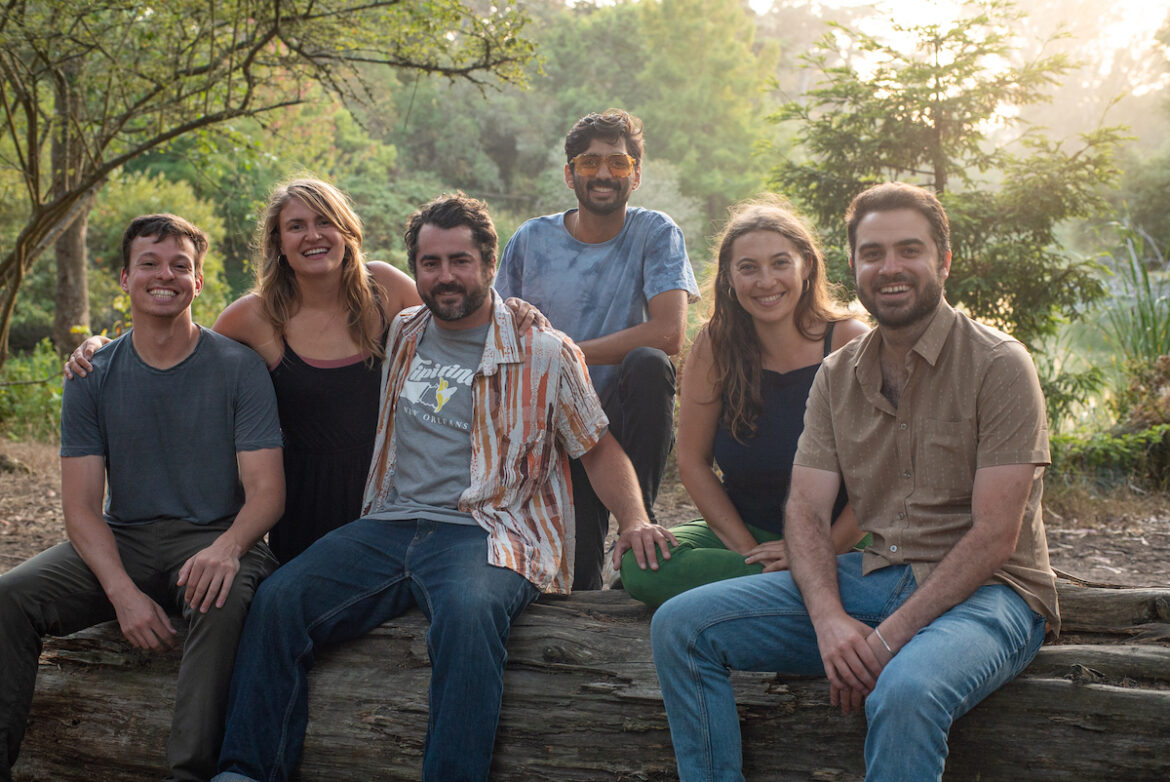
 © courtesy of Sally Mango
© courtesy of Sally Mango
